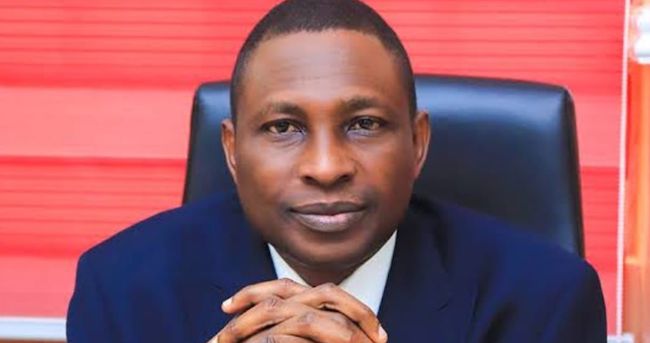
Ola Olukoyede, the Executive Chairman of the Economic and Financial Crimes Commission (EFCC) has emphasized that the commission is committed to the financial laws and enforcing it, he said that this enforcement is also with a focus on cleansing the banking sector and curbing fraudulent activities.
Speaking at the Chartered Institute of Bankers of Nigeria’s 17th Annual Banking and Finance Conference, Olukoyede stated, “I boldly state with every sense of humility that we are no longer folding our arms.”
He emphasized the critical role the banking industry plays in some of the country’s most significant financial fraud cases. “Some of the mind-boggling, major financial frauds and onslaughts that have been carried out against the economy have run through the banking industry.”
Olukoyede outlined the Commission’s approach, stressing the importance of penal sanctions for criminal infractions. “When there are criminal infractions, penal sanctions will follow. We have compiled our documents, conducted the necessary investigations, and very soon, you will see some banks and top officials prosecuted.”
Vice President Kashim Shettima, speaking on behalf of President Bola Tinubu, highlighted the broader economic challenges Nigeria faces, noting that issues such as inflation, rising living costs, and infrastructural deficits are interlinked.
Despite these challenges, Shettima expressed optimism about growth opportunities, saying, “The challenges also present opportunities for growth and development.”
Olukoyede also highlighted specific malpractices undermining the financial system, including forex round-tripping, phantom charges, and complicity in money laundering. He urged banking executives to leave with a renewed commitment to professionalism.
“Operators secretly devise means to circumvent regulations and rules in a desperate bid for higher yields… Look at yourselves in the mirror and leave this place with a renewed commitment to professionalism.”
The keynote speaker, Tony Elumelu, Chairman of Heirs Holdings, reflected on the economic difficulties Nigeria has faced in 2024, characterized by inflation and trade imbalances. “2024 has been a tough year for the country,” he said, advocating for long-term solutions over quick fixes.
